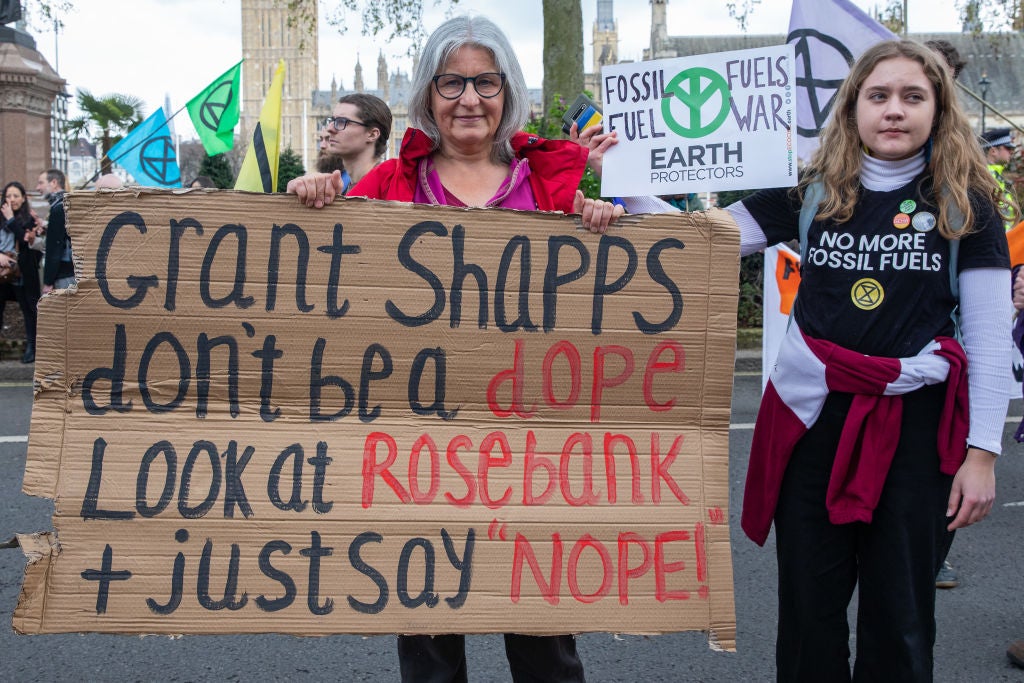
The UK’s Secretary of State for the Department of Energy Security and Net Zero, Grant Shapps, has reassured Britain’s oil and gas industry that it has his full support to continue North Sea drilling during a keynote speech given at the Spectator’s Energy Summit on Wednesday.
At the event, which was sponsored by National Gas as well as Drax, Shapps told an audience mostly composed of energy sector professionals that it “simply makes no sense whatsoever to deny our own oil and gas, and instead import it – with twice the embedded carbon – from elsewhere in the world”. He added that it is “very important” to understand that even the Intergovernmental Panel on Climate Change recognises the need for “some” oil and gas production in 2050 when the UK has reached net zero.

Discover B2B Marketing That Performs
Combine business intelligence and editorial excellence to reach engaged professionals across 36 leading media platforms.
Shapp’s speech, which focused on how Britain can “diversify, decarbonise, and domesticate energy productions, to take control of our energy security”, laid out a series of solutions for how to grapple with the dual crises of soaring energy bills exacerbated by Russia’s war in Ukraine, and global climate crisis.
Reiterating the government’s goal for the UK to have the cheapest energy bills in Europe come 2035, Shapps leaned heavily on the “colossal opportunity” presented by carbon capture use and storage technologies (CCUS), while noting Britain’s success in becoming a “global leader” in offshore wind.
“We have quite literally been blessed with a geological goldmine, waiting to be exploited,” Shapps said of Britain’s CCUS capacity located in the North Sea, calling it “one of the greatest storage potentials in the entire world”.
Meanwhile, just one mile down the road at the Royal Courts of Justice, campaigners celebrated a High Court ruling that granted charity Greenpeace permission to proceed with a judicial review of the government’s decision to launch a new oil and gas licensing round in the North Sea.

US Tariffs are shifting - will you react or anticipate?
Don’t let policy changes catch you off guard. Stay proactive with real-time data and expert analysis.
By GlobalDataOn Wednesday morning, the judge gave Greenpeace permission to conduct a full judicial review into the government’s failure to take into account the environmental effects of consuming the oil and gas due to be extracted in the new licensing round, in which fossil fuel companies submitted more than 100 licences for exploration.
“See you in court” one campaigner wrote on Twitter tagging Shapps, who was in the process of assuring his audience that the government “will not shy away from awarding new licences where they are justified”. The fate of the controversial Rosebank oil field, with the potential to produce 500 million barrels of oil and therefore exceed the UK's carbon budget, remains undecided.
In response to an audience question about how far the government’s windfall taxes on oil majors’ profits might lead the companies to take their money abroad, Shapps responded that the government’s decision to tax their “unexpectedly” high profits in order to supplement UK energy bills “was the right thing to do”, although he noted that the levy has an expiry date of 2028, “which we intend to honour”.
Many have argued that as British oil majors such as Shell – which spent just £108m ($135m) of its £22bn in profits earned last year on windfall taxes – the government can afford to set the tax rate even higher.
Campaigners including the Common Wealth think tank have also pointed out that British oil majors are spending just a fraction of their bumper earnings on renewables, bolstering the case for greater taxation on their earnings.
“I think the oil and gas sector has been remarkable in this country; we want it to stay,” Shapps said, adding that he “couldn’t be more pro oil and gas” in his speech.
Shapps also noted a key government priority must be building more widespread awareness about Britain’s potential for CCUS, something he said it has currently failed at.
He added that the majority of the British public are also likely to be “blissfully unaware” of the extent to which the UK is a world leader in offshore wind development, something he is intent on rectifying.





